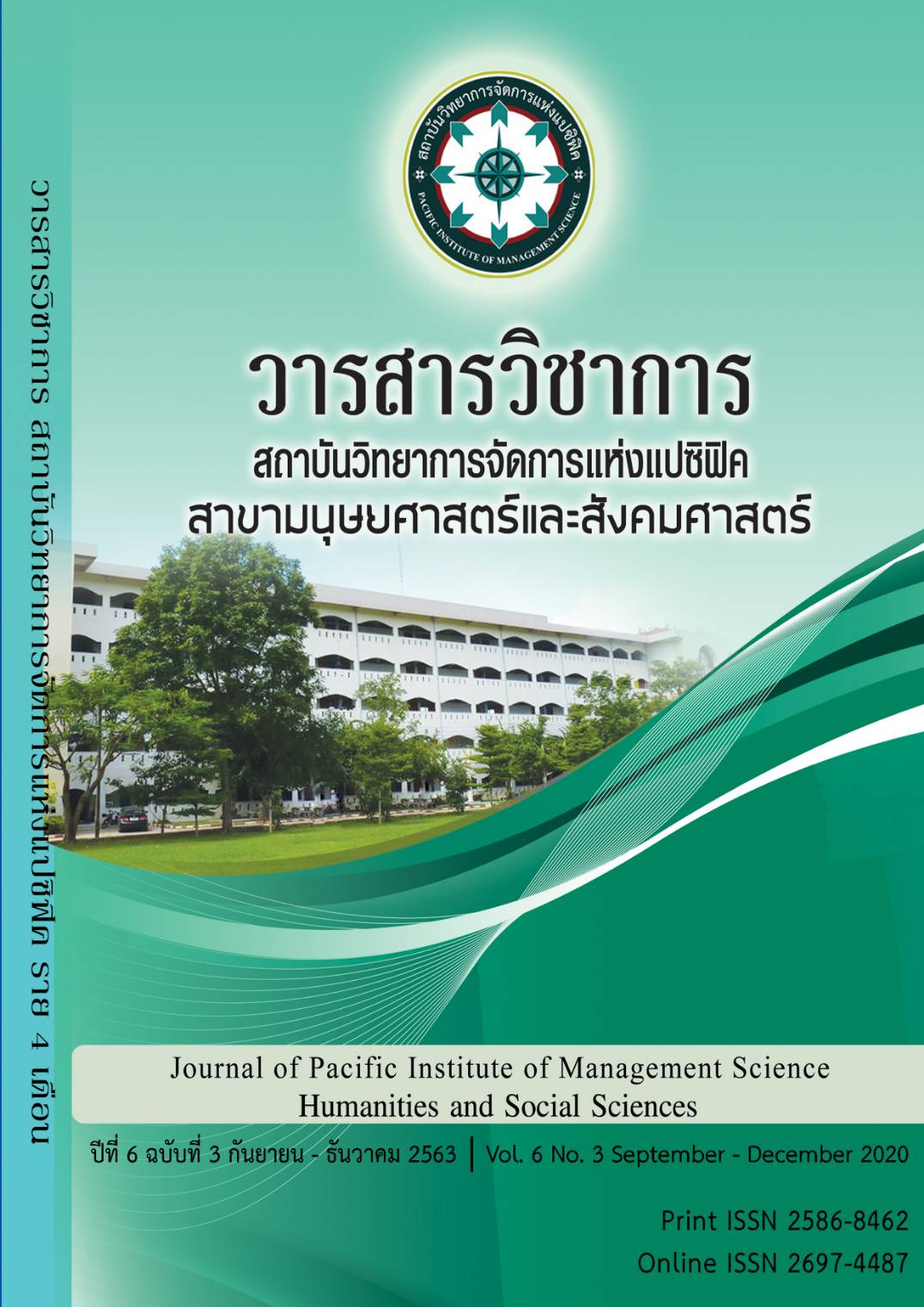THE FACTOR ANALYSIS OF EFFICIENCY AND EFFECTIVENESS IN ADMIMISTERING PRIVATE EARLY CHILDHOOD SCHOOLS
Keywords:
factor, efficiency, early childhood schoolsAbstract
This research aimed to (1) study the level of efficiency and effectiveness in the administration of private early childhood schools. And effectiveness in the administration of private early childhood schools (3) presented guidelines for the management of private early childhood schools. The research method was used as a mixed method. The research was conducted in three phases, i.e., phase 1 to study the level of efficiency. And the effectiveness of private early childhood school administration by studying the concept Related theories To create a questionnaire The population consisted of administrators, teachers and educational personnel of private early childhood schools who passed the quality assessment outside of early childhood education institutions under the Office of the Private Education Commission for the third round. The sample group was 378 administrators, teachers, and educational personnel of private early childhood schools. People by multi-step sample selection and simple randomness. Phase 2 analyzes the performance components And effectiveness in the administration of private early childhood schools Data were analyzed using frequency, percentage and survey components. Phase 3 presented guidelines for the management of private early childhood schools. Using information from Phase 1 and Phase 2 together with information from interviews with 10 experts to formulate guidelines. The research study found that
- Level of efficiency and the level of effectiveness in the administration of private early childhood schools Overall, it is at a high level X̄ = 4.19 and X̄ = 3.95.
- The performance survey element had a statistically significant value at the level of 0.000 (p <.001). In addition, the Kaiser-Mayer-Olkin Measures of Sampling Adequacy KMO was the value. Equal to 0.941 found that the number of 4 components: academic administration Budget management Personnel Management and general administration
Effectiveness Survey Components In addition, the Kaiser-Mayer-Olkin Measures of Sampling Adequacy KMO index was 0.879 and found that 3 the elements are the quality of the child. Administrative and management processes and providing child-centered experiences
- Guidelines for the management of private early childhood schools: efficiency consists of 10 approaches and the effectiveness consists of 9 approaches.
References
เกษม วัฒนชัย. (2545). การปฏิรูปการศึกษาไทย. กรุงเทพมหานคร: โรงพิมพ์ 21 เซนจูรี่.
ถวิล มาตรเลี่ยม. (2544). การปฏิรูปการศึกษาโรงเรียนเป็นฐานการบริหารจัดการ. กรุงเทพฯ: เสมาธรรม.
ทิศนา แขมมณี. (2545). หลักการและการจัดรูปแบบการจัดการศึกษาปฐมวัยตามวิถีชีวิตไทย. กรุงเทพมหานคร: สำนักพิมพ์จุฬาลงกรณ์มหาวิทยาลัย.
ธเนศ ขำเกิด. (2545). การบริหารโดยใช้โรงเรียนเป็นฐาน. วารสารส่งเสริมเทคโนโลยีปีที่ 28 ฉบับที่ 160 (ธ.ค.2544-ม.ค.2545) หน้า 148-151.
นริสานันท์ เดชสุระ. (2552). “รูปแบบการบริหารโรงเรียนสาธิตปฐมวัยของมหาวิทยาลัยราชภัฏ” ดุษฎีบัณฑิต สาขาวิชาการบริหารการศึกษา มหาวิทยาลัยศิลปากร.
ประกาศกระทรวงศึกษาธิการแห่งชาติ. (2547). พระราชบัญญัติ (ฉบับที่ 2) พ.ศ. 2545 และมาตรา 12 แห่งพระราชบัญญัติ การศึกษาแห่งชาติ พ.ศ. 2542. (10 เมษายน 2547)
สำนักงานคณะกรรมการการศึกษาพื้นฐาน. (2553). แนวทางการดำเนินงาน โรงเรียนมาตรฐาน สากล. กรุงเทพฯ: โรงพิมพ์ ชุมนุมสหกรณ์ การเกษตรแห่งประเทศไทย.
A. Godon and Browne (1993). Beginnings and Beyond. New York: Delmar, p. 76-77.
Hoy and Miskel. (2008). Educational Administration: Theory, Research, and Practice. New York: McGraw-Hill.
MacGilcheist. B, Myers, K and Reed. J. (2004). The Intelligent ScThe United State of America: Paul Chapman Publishing Ltd,.
Mortimore, P. et al. (2004). Primary School Leadership in Context. London: Routlede
Sharon G.Pierson. (2009). A Model school Alabama state college laboratory hight school: A Study of African Americans Dedication Educational Excellence During Segregation Journal of Education
Downloads
Published
Issue
Section
License
บทความที่ได้รับการตีพิมพ์เป็นลิขสิทธิ์ของ สถาบันวิทยาการจัดการแห่งแปซิฟิค
ข้อความที่ปรากฏในบทความแต่ละเรื่องในวารสารวิชาการเล่มนี้เป็นความคิดเห็นส่วนตัวของผู้เขียนแต่ละท่านไม่เกี่ยวข้องกับสถาบันวิทยาการจัดการแห่งแปซิฟิค และคณาจารย์ท่านอื่นๆในสถาบันฯ แต่อย่างใด ความรับผิดชอบองค์ประกอบทั้งหมดของบทความแต่ละเรื่องเป็นของผู้เขียนแต่ละท่าน หากมีความผิดพลาดใดๆ ผู้เขียนแต่ละท่านจะรับผิดชอบบทความของตนเองแต่ผู้เดียว







